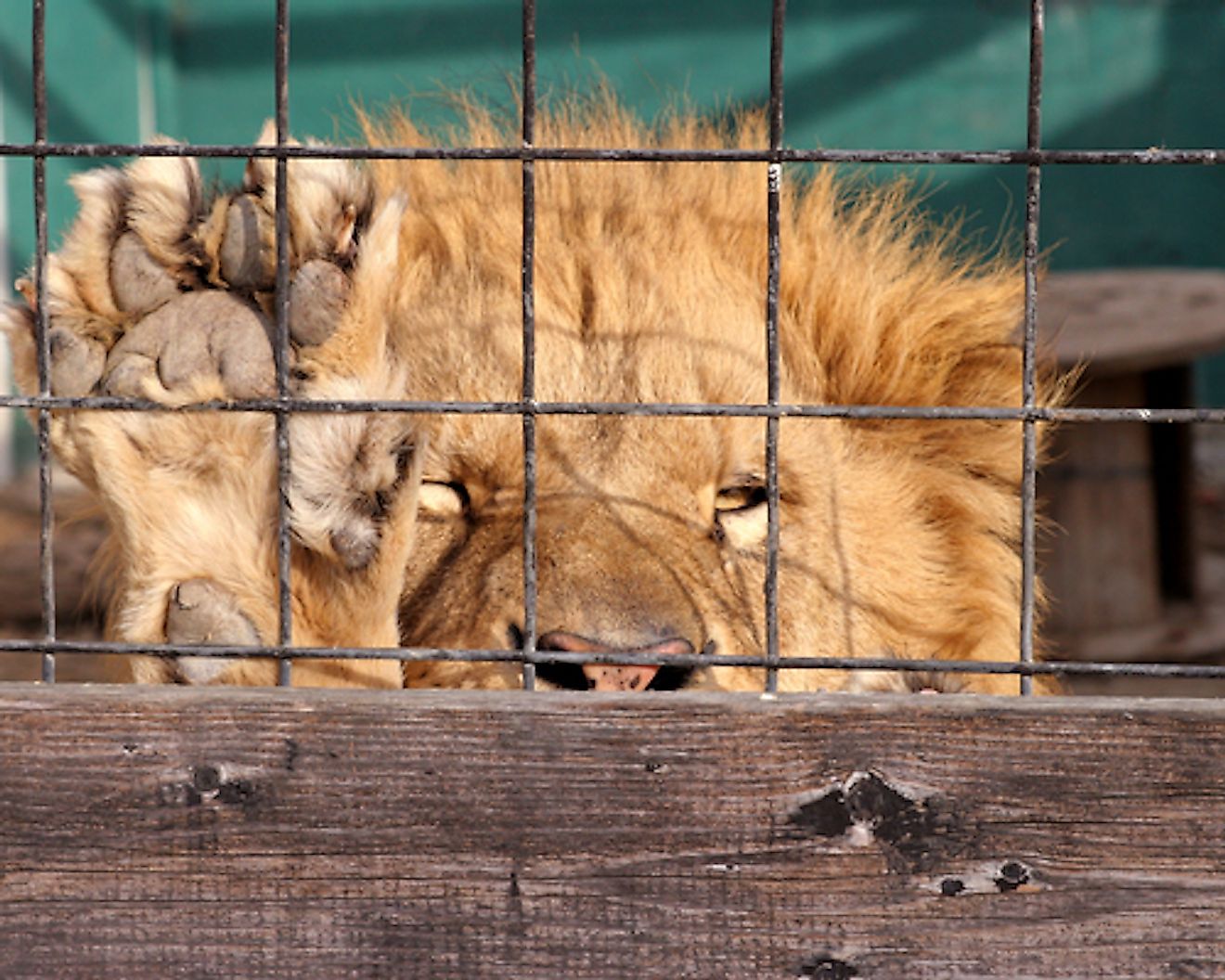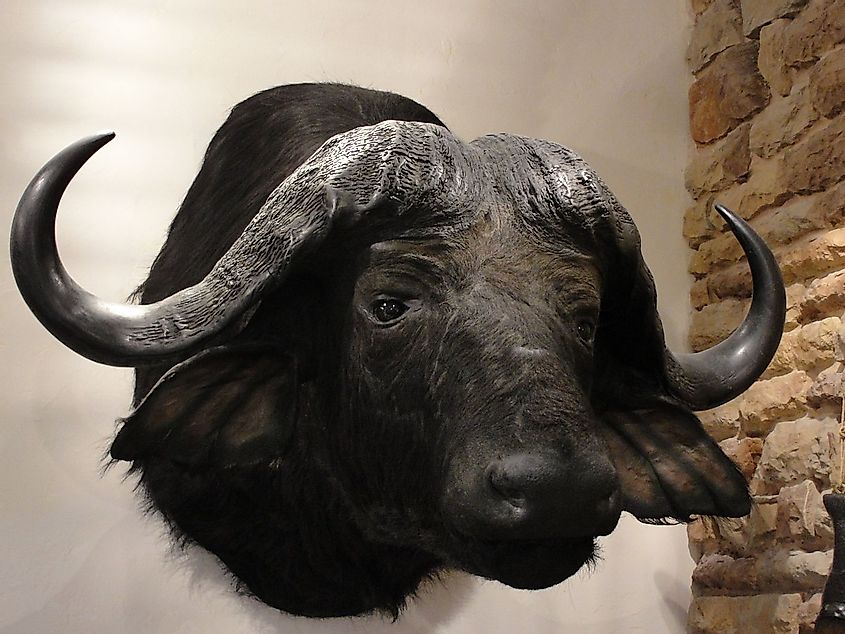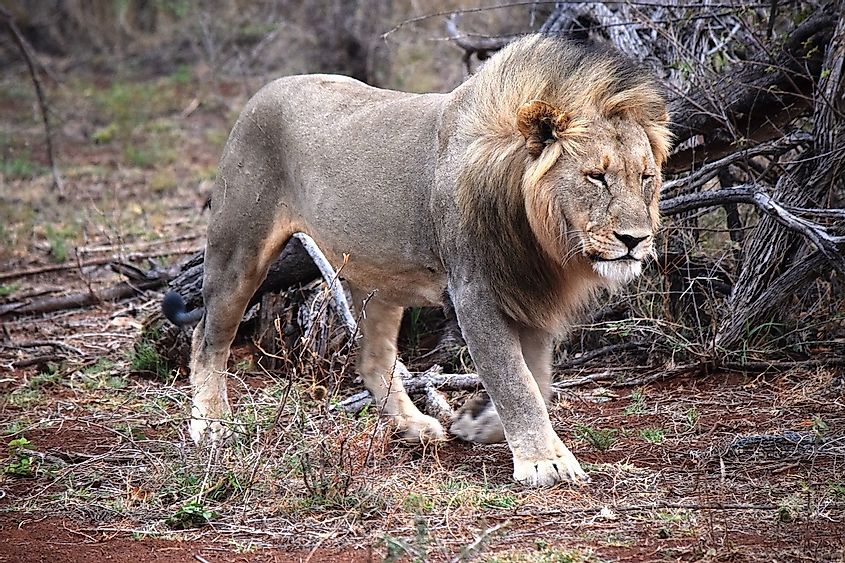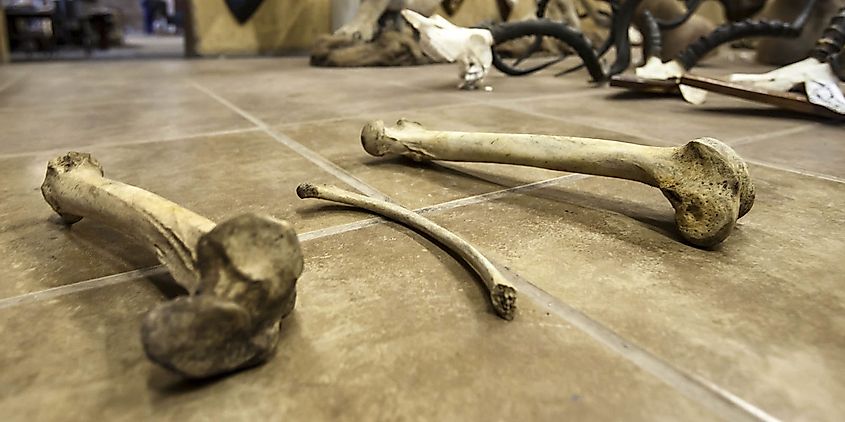10 Horrifying Secrets Of The Canned Hunting Industry

- There are no federal laws that prohibit canned hunting in the United States.
- The exact number of breeding farms in South Africa is unclear, but estimates range from 160 to over 200 with approximately 7,000 lions in captivity.
- Canned hunting is referred to as “unfair chase” because animals are deposited in fenced-in areas with very little to no chance of survival.
The canned hunting industry is a shockingly cruel type of sport where people hunt wild animals in caged and controlled environments. It is a rich man’s activity designed to satisfy the distasteful desire to dominate nature. Even though many hunters denounce this type of unethical and unfair practice, it remains a lucrative business in many countries around the world, particularly the United States and South Africa. The following are ten horrifying secrets regarding the industry.
The Hunted
Victims of the canned hunting industry are diverse in species, but for the American hunter, they are usually exotic or foreign animals. Unfortunately, many endangered species find themselves vulnerable to the hunt: the scimitar oryx, the dama gazelle, the Nubian ibex, the mouflon, and the barasingha or swamp deer. Despite the unusualness of these creatures, lions tend to be the most popular prize.
Tourism

Canned hunting thrives as a tourist sport, with South Africa being the most popular destination for the American and European wealthy. Their kills often return home with them, mounted as trophies or as souvenirs.
The Law
On a federal level, there are no laws that prohibit canned hunting in the United States. Whether or not it is permitted depends on each individual state. Approximately only half have banned the practice. To make matters more complicated, the Endangered Species Act protects threatened animals, but the Fish and Wildlife Service does not forbid private ownership of these animals and permits captive hunting. There are more than a thousand hunting operations in the country, 500 of which are located in Texas.
The law is a little more muddied in South Africa. For example, canned lion hunting is illegal, but captive-bred lion hunting is allowed.
Bred In Captivity

To ensure the legality of their practice, lions are bred in captivity in South Africa and are held in small dens until they are “ready” for the hunt. The exact number of breeding farms is unclear, but estimates range from 160 to over 200 with approximately 7,000 lions in captivity. In fact, there are around 5,000 more lions held in captivity than there are living in the wild.
Once they are born, cubs are immediately taken away from their mothers so that they can quickly become fertile again. An adult female will have about five litters every two years. Evolutionary biologist Pieter Kat describes it as a “conveyor-belt production of animals.”
Unknown Inhumanity
These operations are far more duplicitous than they sound. They prey on the kind-heartedness of others by masquerading as conservation projects aimed at protecting endangered species. Taken in by these deceptions, volunteers donate their time and effort to tend to these animals. Instead of making a positive impact, they are directly—yet unknowingly—supporting the canned hunting industry.
The Unfair Chase
“Fair chase” is defined as a hunter not having any sort of unfair advantage over their prey. It is an ethical and lawful philosophy abided by a large portion of the hunting community.
Canned hunting is referred to as “unfair chase” because animals are deposited in fenced-in areas with very little to no chance of survival. From birth, they are groomed for one purpose: to be hunted and killed. Sometimes they are already in bad shape due to poor nutrition. Furthermore, by interacting with them since the moment they are born, animals are trained not to be afraid of humans. This makes them easier targets and gives the hunter an unfair advantage.
Prices
The cost of canned hunting changes drastically depending on the species of the prey. When it comes to lions, prices are so exorbitant that a fully-grown, male lion can cost anywhere between $30,000 and $55,000. Many hunters will pay more money for lions with thick, dark manes as they supposedly make better trophies. Due to the importance of manes, lionesses can be bought for less than $6,000.
Some hunting packages include support from professional hunters and even room and board.
Internet Hunting

“Internet hunting” allows people to hunt live prey from behind a computer screen. In their den however far away, animals are lured into position by food at which point the so-called hunter would trigger a mounted weapon and kill their game with a single click of the mouse. Trophies are then prepared and shipped to the customer. Depending on the size and species of the animal, it could cost more than $1,500.
Many hunting communities regard this practice with distaste as it reduces the experience to murder and violates the “fair chase” philosophy.
With help from the Humane Society of the United States, “internet hunting” is currently banned in 38 states.
Diseases
Animals living in captivity are all at risk of catching and spreading various illnesses, including tuberculosis and brucellosis. A serious concern is chronic wasting disease which is fatal to deer, elk, and moose. Due to the unscrupulous nature of breeding farms, it is doubtful whether sick animals receive proper veterinary care.
Although canned hunting grounds are required by law to be fenced-in, animals in the past have escaped. If one such animal is suffering from a deadly disease, the outside wildlife suddenly becomes at risk.
Lion Bones

So many lions are born in captivity that a shortage of animals for the canned hunting industry is highly unlikely. In South Africa, euthanizing healthy captive-bred lions is legal with a permit. Many breeders choose this route to profit from the lucrative lion bone trade, which in itself is a prosperous business for lion farmers. Once the trade of tiger bones became illegal, the demand and monetary value of lion bones skyrocketed. They are usually shipped to various parts of Asia for use in traditional medicine products.







